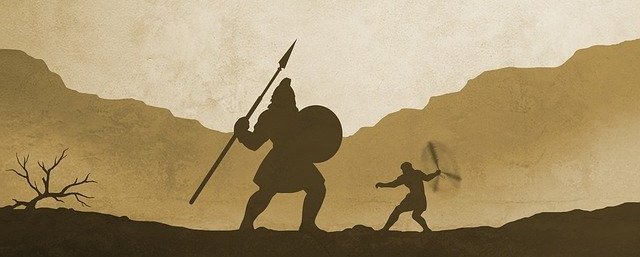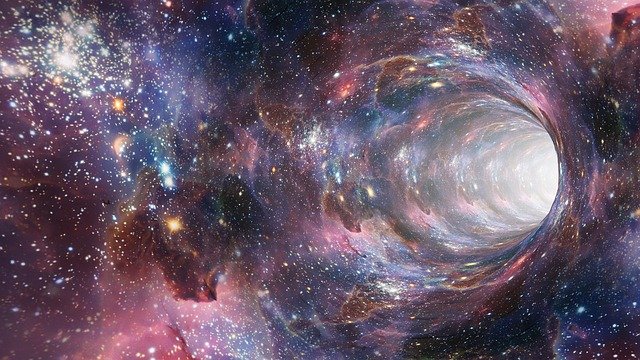This post is in response to a question to an earlier essay that I wrote, On the Meanings of Saturn and Pluto. In that essay I argued that the modern meanings of Pluto were originally associated with the planet Saturn, and that the meanings of Saturn ended up being simplified and impoverished.
Here is the specific comment that I want to respond to.
Hello.
I’ve been reading a lot of your journal posts recently. I’m wondering if you can write something about Uranus and Neptune in a way you did with Saturn and Pluto. Are Uranus and Neptune borrowing traits from some other planets (maybe Mercury and Jupiter)?
I haven’t done posts on Uranus and Neptune because I don’t think there is a simple, one to one correspondence between either of them and a single traditional planet. You also have to take into account that adding the three modern outer planets also changes the entire system.
Here are my thoughts on Uranus and Neptune, and traditional astrology.
Uranus
Of the two planets I think Uranus is the easier to sort out. In traditional terms I would say that Uranus has some meanings that were originally attributed to Mars, and some to Mercury.
From Mars we get the meanings of disruption, sudden cataclysmic change, shock, and so on.
From Mercury we get the association with technology, communication, ways of thinking, ideas and so on. Mix the two together and you also get pioneers, rebels, outcasts.
That’s part of it.
Beyond that, consider the question of how adding Uranus the Oddball outside of the traditional seven planets affects the meanings of the whole system in general, and of Saturn in particular. This is a complex topic, and I go into it in a fair amount of detail in my recent book, Saturn Through the Ages: Between Time and Eternity.
In the traditional system Saturn is the outermost of the seven traditional moving planets, at the border between the moving spheres of the planets and the unmoving sphere of the fixed stars and the unchanging heavens. Saturn is at the interface between time and eternity, and mediates the eternal order down into the world of motion and change. This has a rich and complex mix of meanings that I discuss in the Saturn book.
Add Uranus outside Saturn and the whole dynamic changes. Saturn is reduced to being associated with the past, with the establishment, the old order, and the limitations of the old order, while Uranus becomes the new, the rebel, the pioneer, the disrupter, the individual and individual thinker moving forward into the uncharted future. Future and New are good, while the Past and the Old are evil and restricting. There is a whole broad change in value judgments that goes with that change, and I analyze that in my Saturn book.
It gets complicated very quickly.
Neptune
When we turn to the planet Neptune, things get a lot messier and murkier, which is a very Neptunian sort of a situation. I connect Neptune to some meanings from at least three of the traditional planets.
There is the moon, especially the dark waning moon. The Moon is related to liquids and the ocean. The dark malefic moon is related to witchcraft, enchantment, illusion, deceptions, and also to poisons. (Just to make it more messy, poisons are also associated with Saturn.) Think of the cliche image of witches meeting at night under the moon to go on their journeys and work their malefic spells.
There is Venus, especially Venus debilitated and dangerous. Venus is associated with glamour, with dreams, with the magnetic attraction of beautiful and intoxicating things. Venus when debilitated is associated with enchantment. Venus associates with glamour, which is a very Neptunian sort of word, and also very Venusian – again, think lovely, glamourous, bewitching, intoxication. It is a very magnetic and seductive sort of energy. Venus is also associated with intoxicating drinks and drugs, and the deception from that. Think of lovely, enchanting, seductive and dangerous, coming under someone’s spell.
There is also a connection of Neptune with some of the meanings of Jupiter, and here things get especially complex. Neptune at its highest is now associated with spirituality, and that is traditionally under the domain of Jupiter.
The problem here is that the meaning and connotations of the words spirituality and religion have changed greatly in the past few hundred years, enough so that what we now think of as Neptunian spirituality would have made no sense to a devoutly religious and “spiritual” person of prior ages.
Just the fact that we split off the meanings of spiritual and religious from each other, and that we can talk about “spiritual but not religious”, is a very modern sort of phenomenon. The meanings of the word spiritual have become much more vague, nebulous, unformed, subjective, dreamy – much more Neptunian.
Along with that, the meanings of Jupiter, and the full meanings of the concept of religion, have become shallower, more negative, cheapened and even degraded. Like the Saturn and Uranus association of Past and Future, Religion becomes associated with a restrictive past and Spirituality with an open-ended and unformed Future. There are all sorts of complex changes in value judgments that go with that change in meaning.
Like I said, it gets complicated very quickly.
The Larger Question
Beyond any question of which traditional planet the modern planets took their meanings from, there is a larger issue of overall change in system and in meaning. The more I think about it, the more I am of the opinion that the original question, of which planet meant what, is the wrong question.
In modern astrology the meanings attributed to the traditional seven planets have become much simpler, thinned down, less complex and multi-dimensional. Rather than approaching the question in terms of the modern meanings, I think there is the larger question of recovering the fuller, richer and more complex meanings of the traditional seven. My most recent book, on The Classical Seven Planets, is trying to do just that.
If you just start with the modern meanings of the planets and assume that they are adequate, you are missing a lot of the depth and subtlety of traditional astrology. If you want to learn traditional astrology I think it makes more sense to just set the modern planets aside and spend time immersing yourself in the entire traditional system. It is worth taking the time to get to know the traditional meanings of the planets on their own terms.



